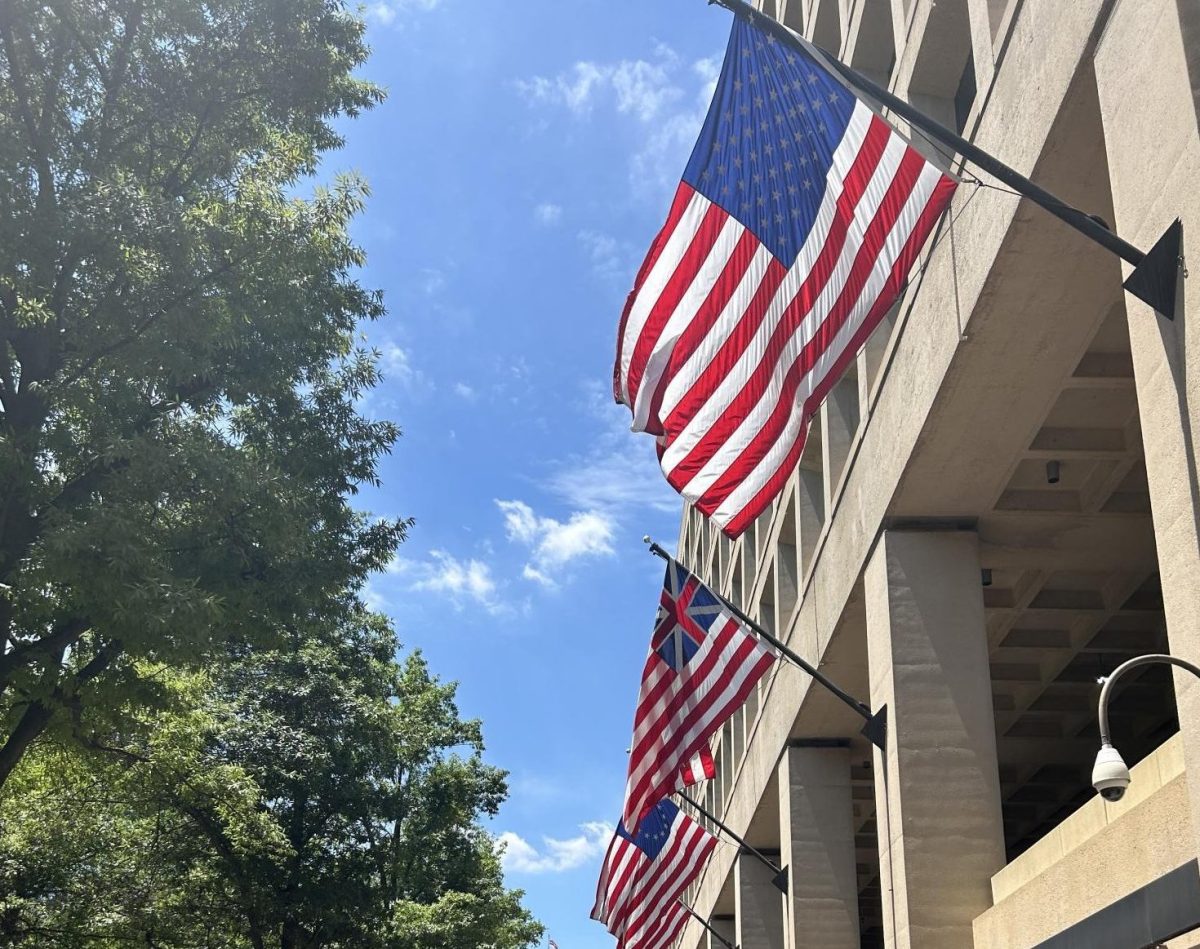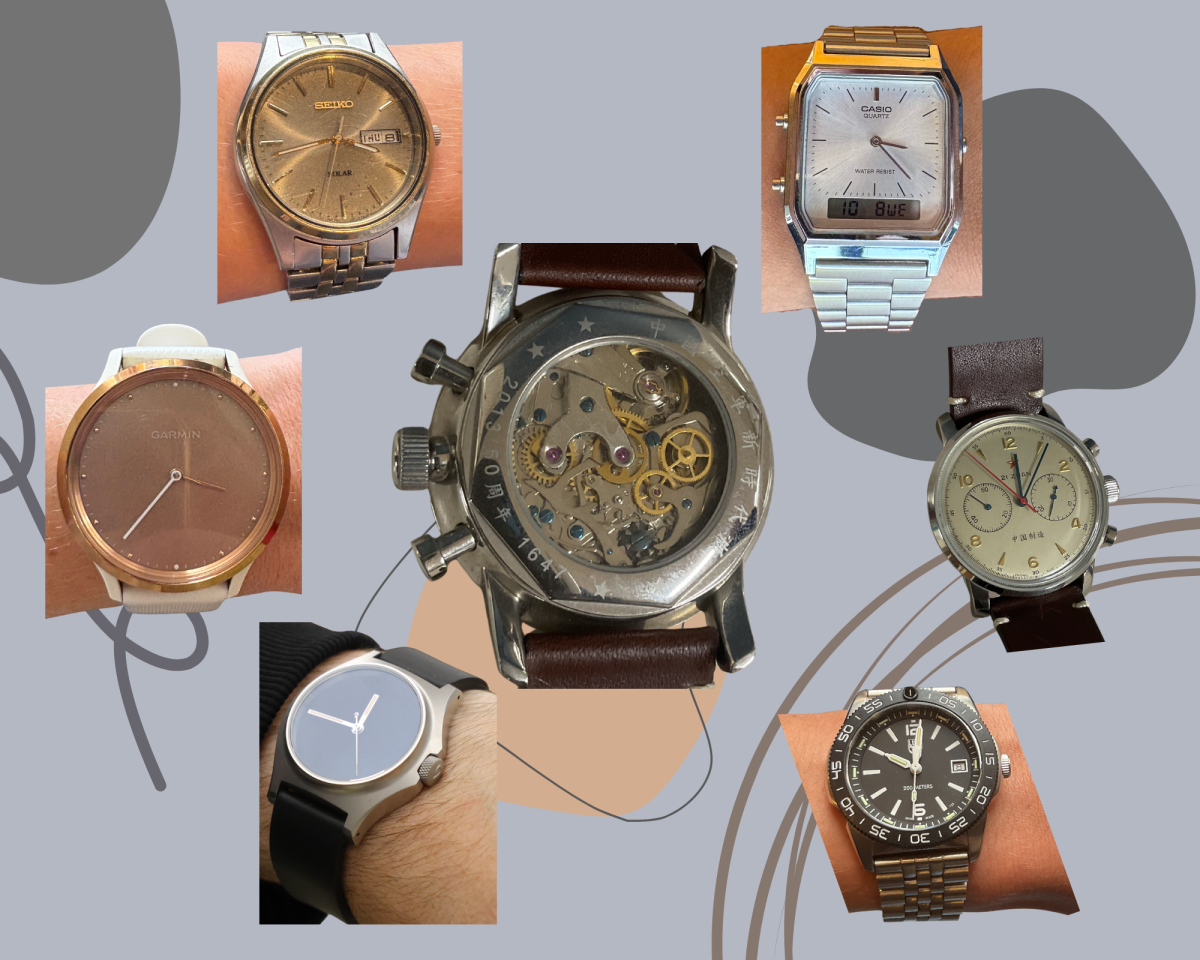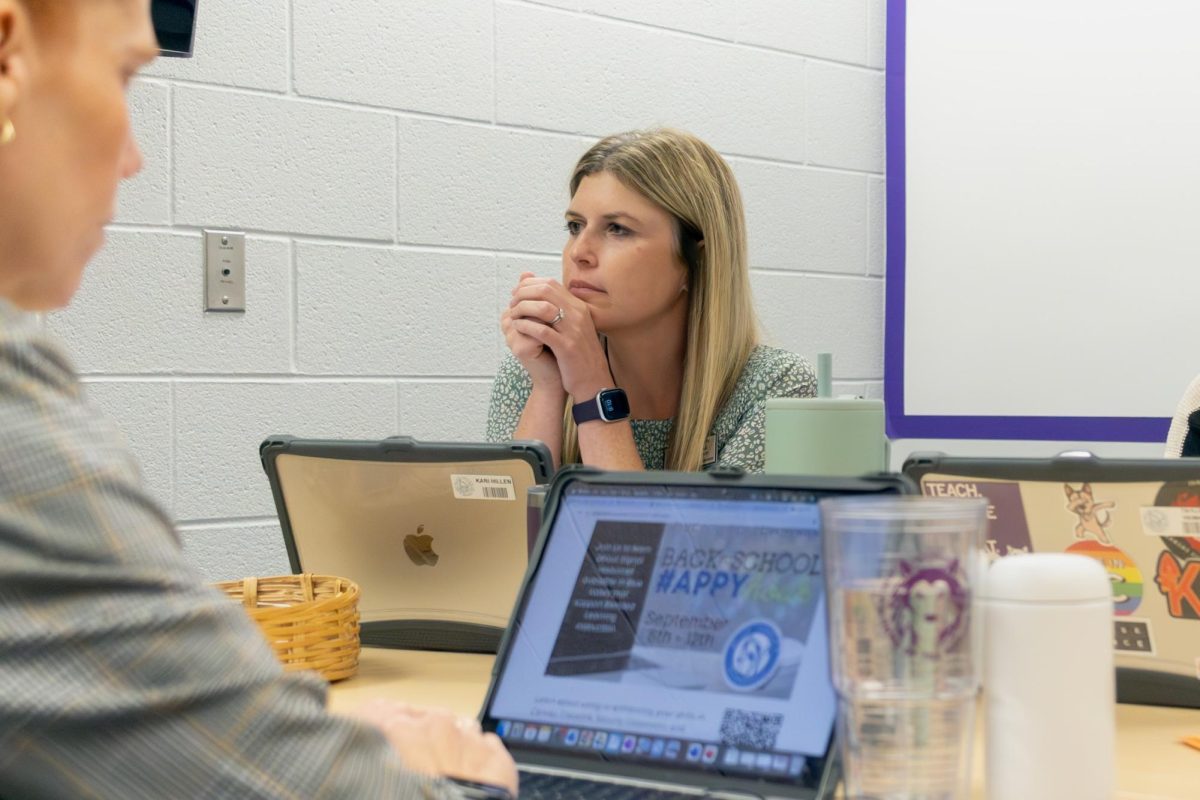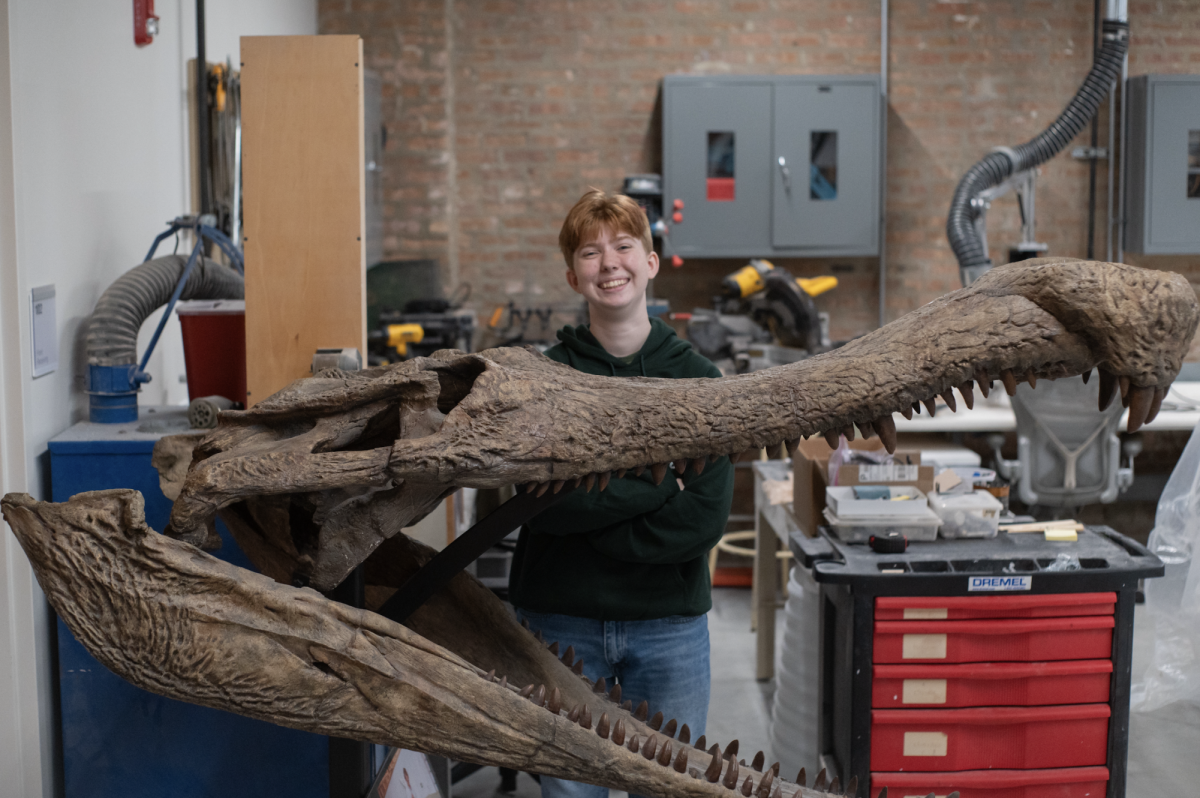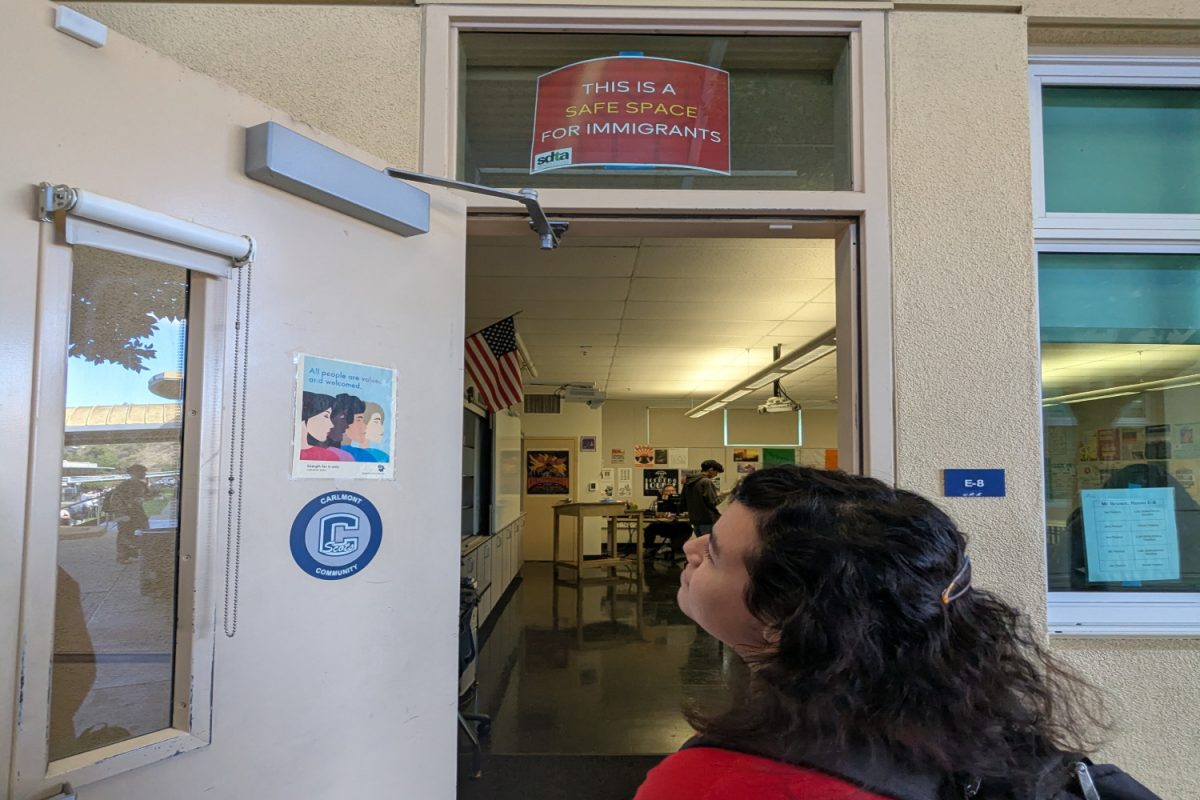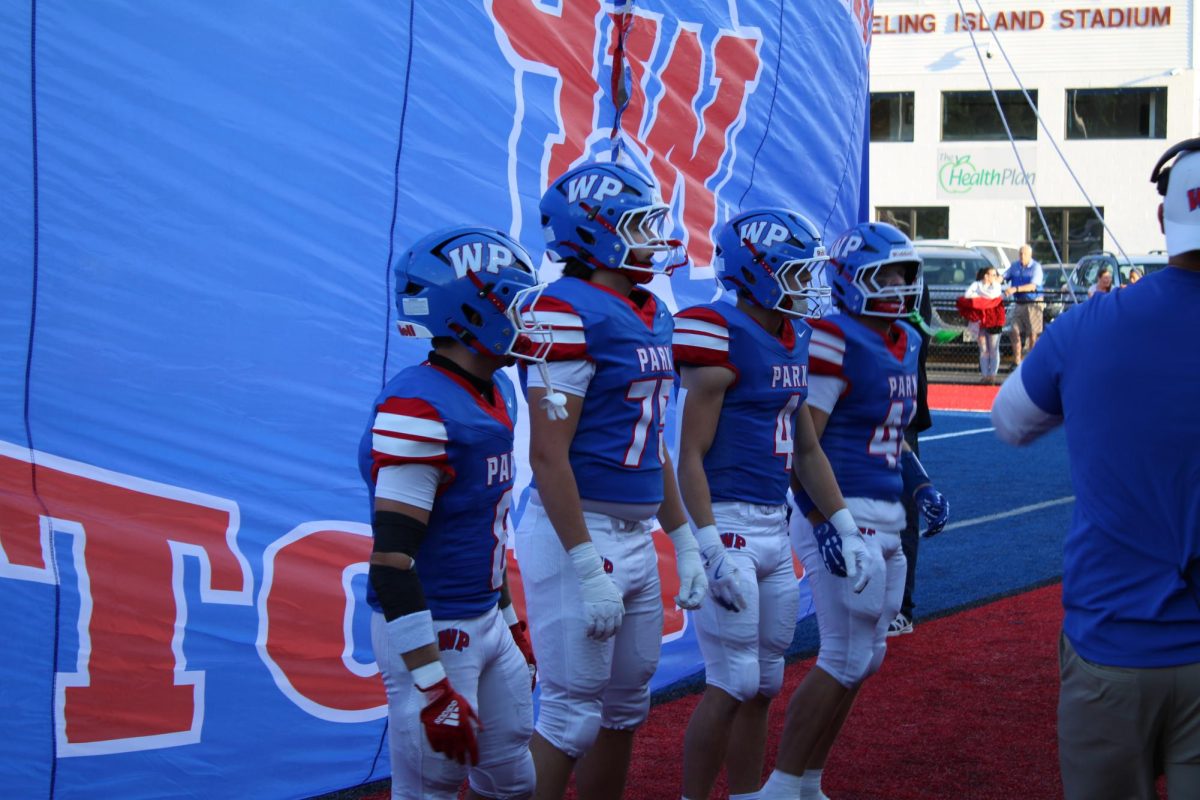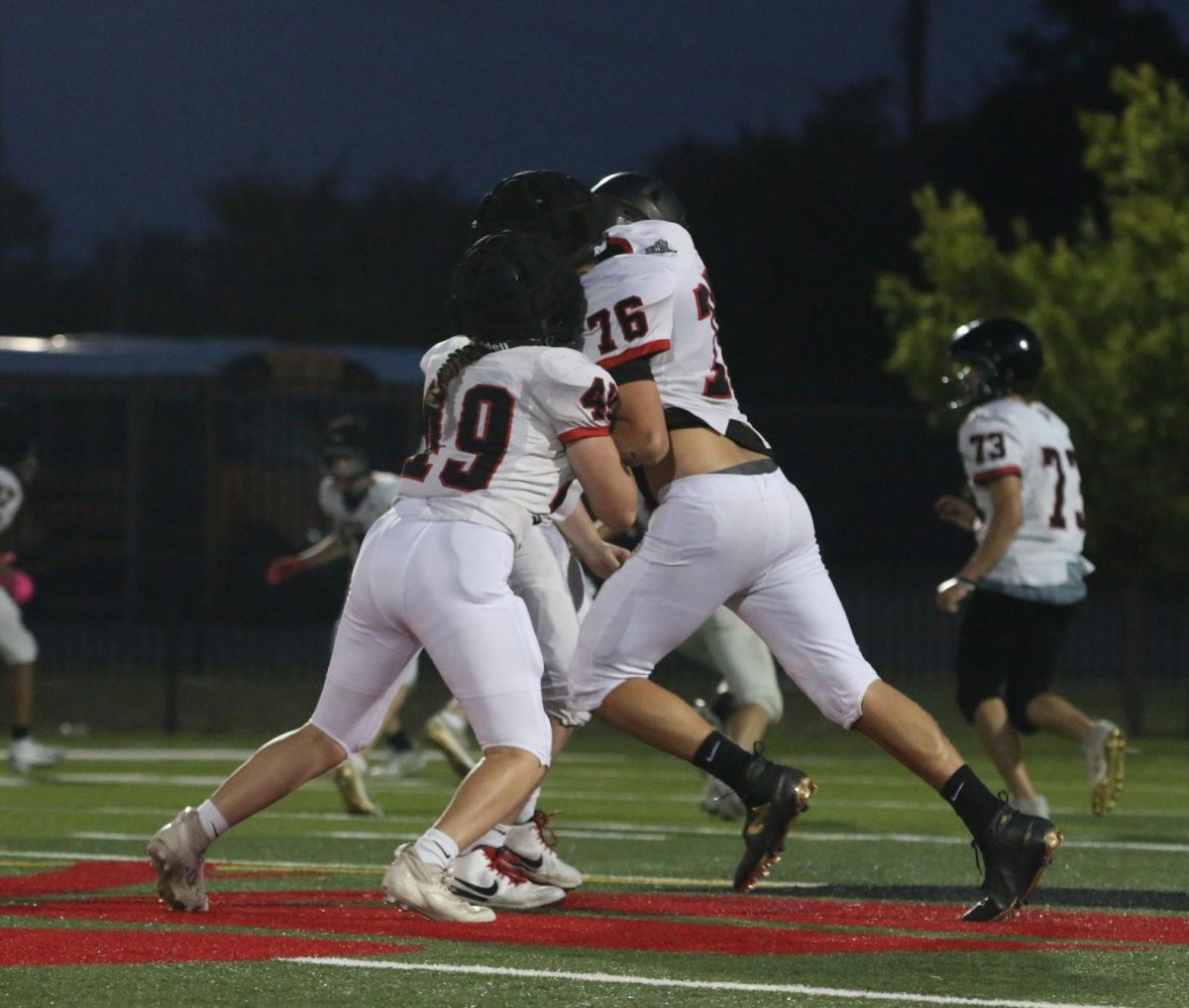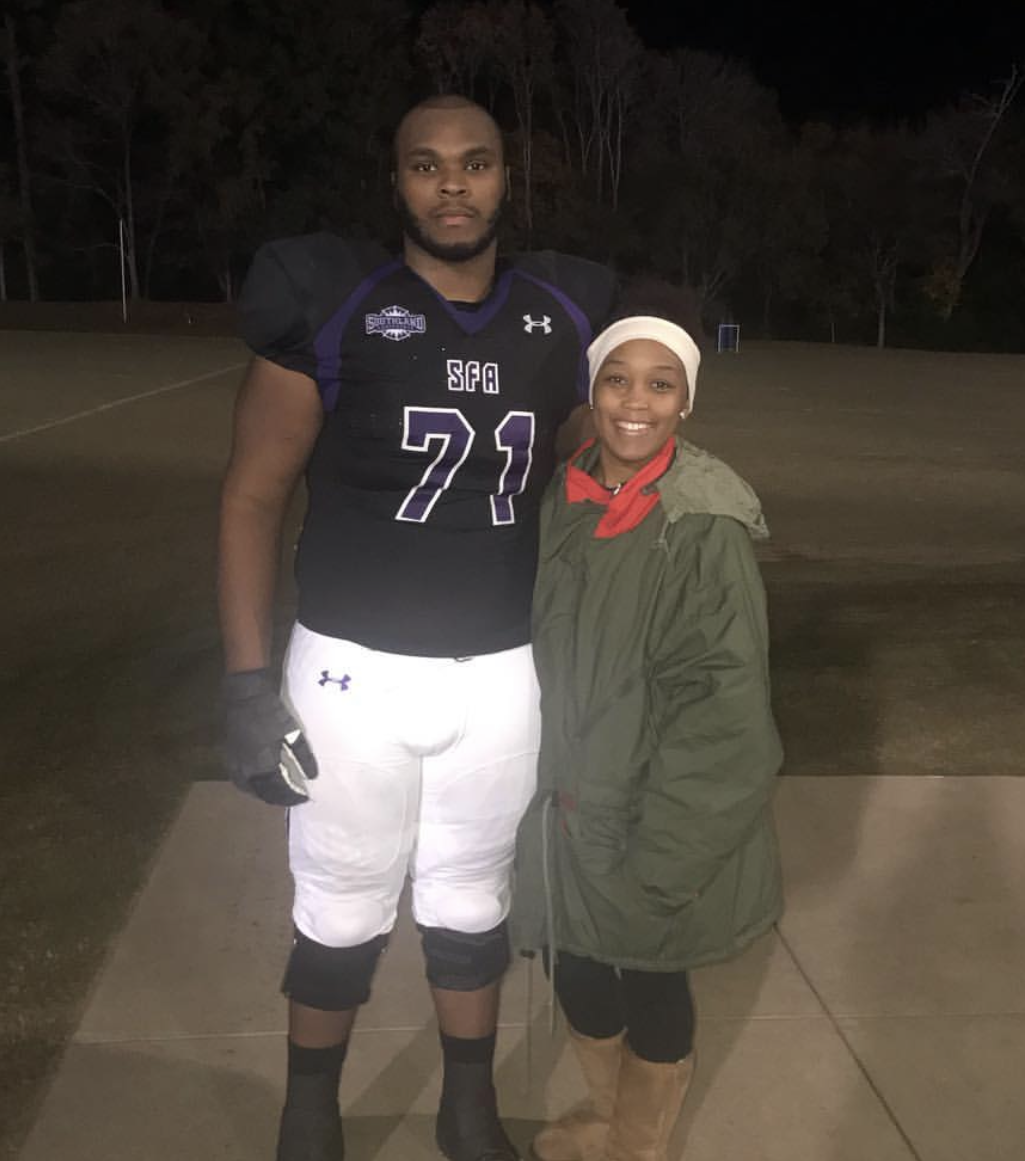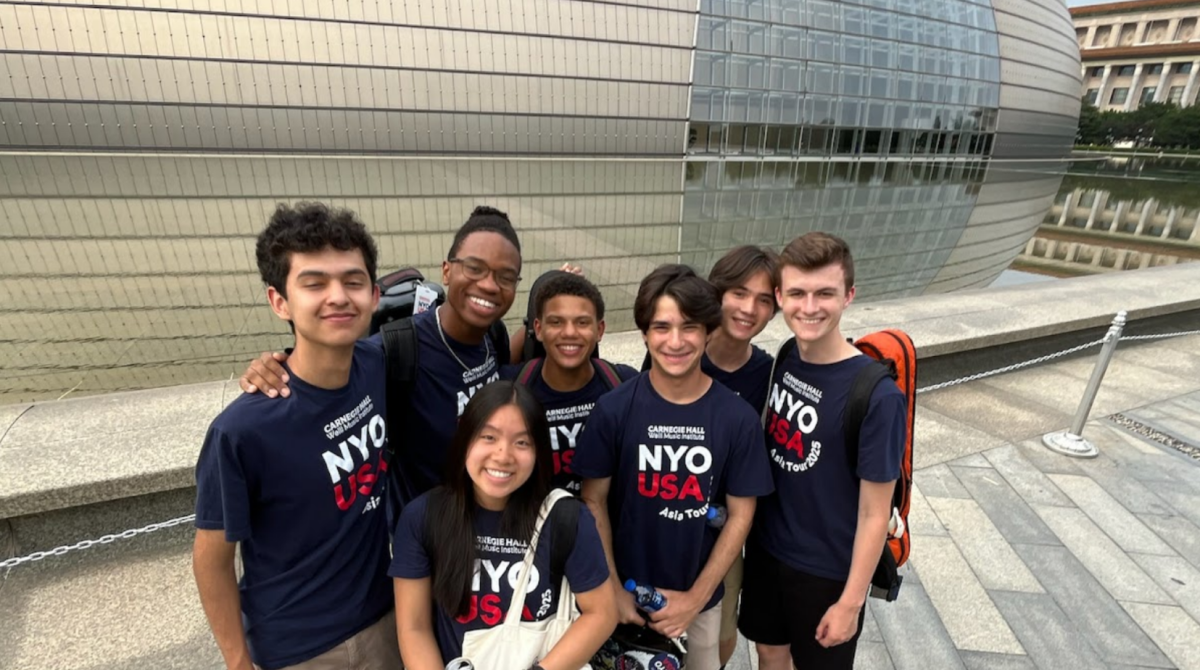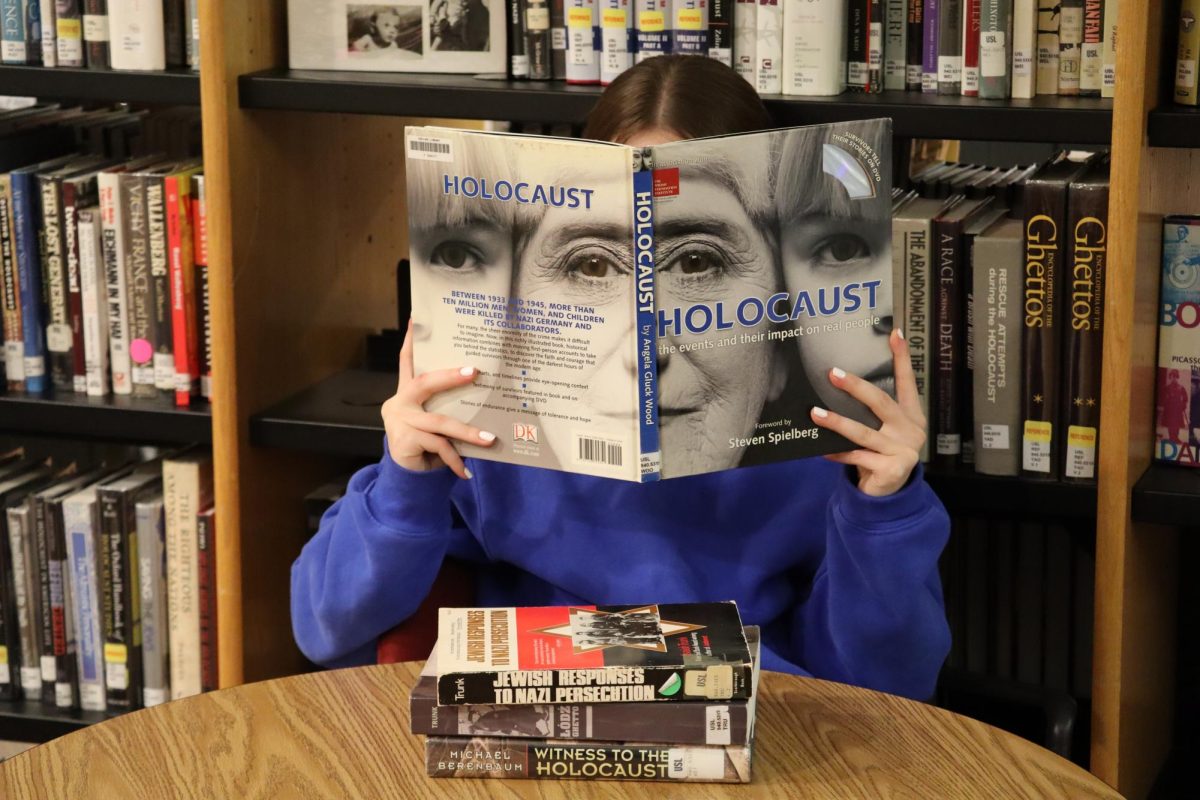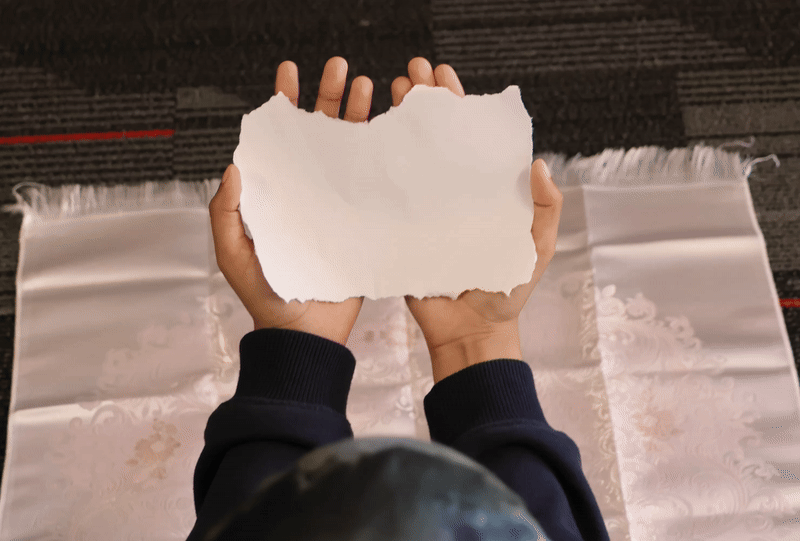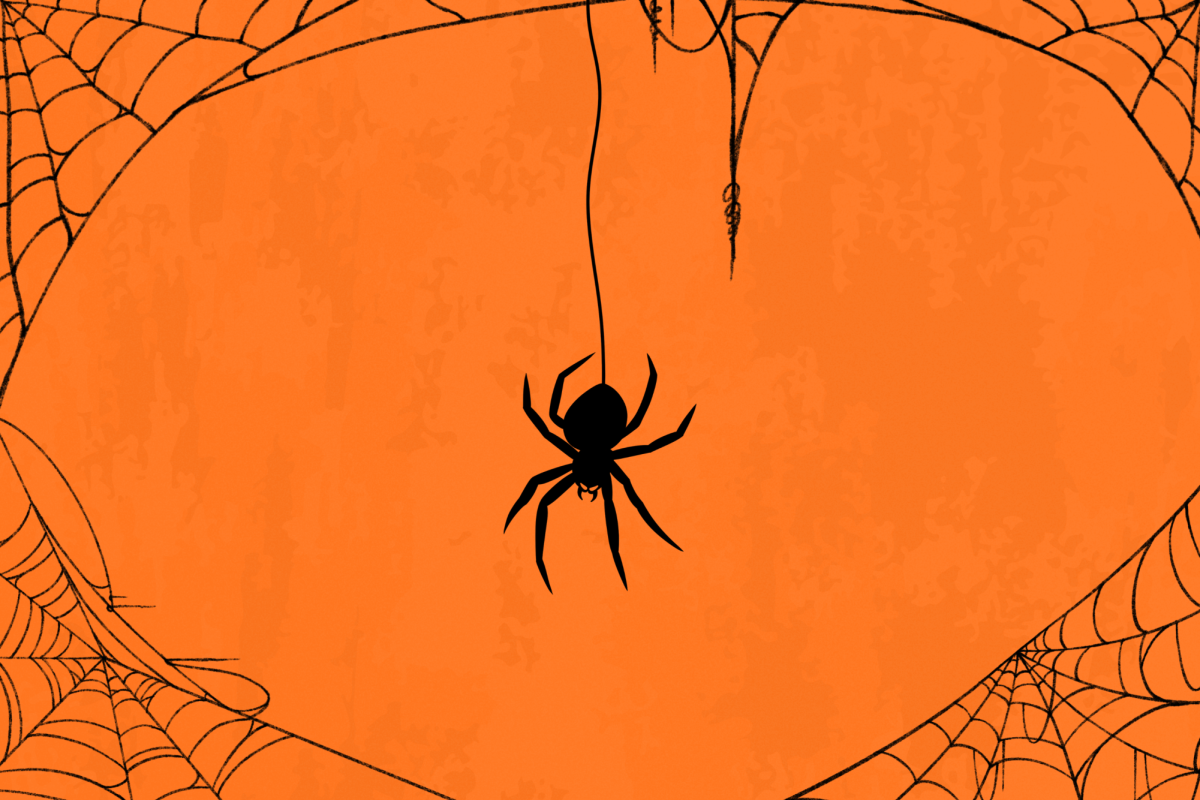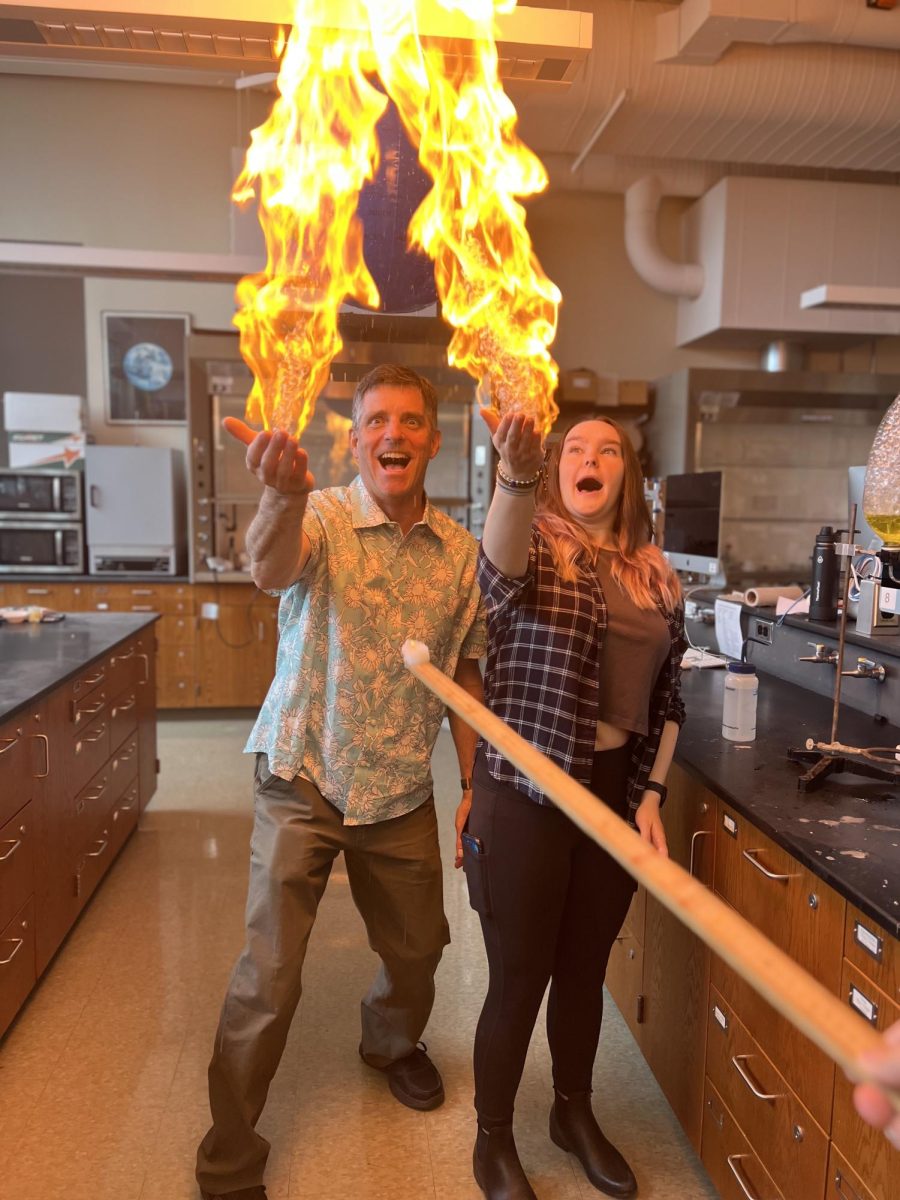 Some know him as a geologist, a SummerQuest administrator, a professional storyteller or a maple syrup connoisseur. Still, all know Nathan Peck as an institution of the science department and the school. From accumulating bowling accolades to taking teams to Interstate Finals for the Academic Challenge in Engineering and Science (ACES), Peck has been consistently recognized for his talents inside and outside the classroom.
Some know him as a geologist, a SummerQuest administrator, a professional storyteller or a maple syrup connoisseur. Still, all know Nathan Peck as an institution of the science department and the school. From accumulating bowling accolades to taking teams to Interstate Finals for the Academic Challenge in Engineering and Science (ACES), Peck has been consistently recognized for his talents inside and outside the classroom.
Peck’s career is older than most students he teaches. He spent his first 18 years as the district’s Science Coordinator and the remaining six as the high school’s Science Department Chair. Despite these roles of authority, Peck is known as a laid-back, accessible and fun-loving teacher. Junior Ally Ord was part of his only 2022-23 Honors Chemistry class and remembers it fondly.
“[Peck was] probably the most interesting, engaging teacher, [and] knew how to relate with his students. The first three days we just talked about skincare,” Ord said. “I hated chemistry so much—I still don’t understand a thing—but I was always so excited to go to Mr. Peck’s class. He lets us be people, not just a student in a classroom, [and] has so many stories to tell.”

Peck’s dedication to teaching is evidenced by his actions, particularly during challenging health episodes. For instance, after experiencing a heart attack two years ago, Peck quickly resumed teaching by posting assignments online within a matter of days. More recently, he underwent heart surgery at the end of April and was absent for only two school days. Students and colleagues noted his swift return to his educational duties after such serious health events, reflecting a strong commitment to his professional responsibilities.
Despite his natural talent in the profession, Peck initially never intended to become a teacher.
“Before teaching, I had a fellowship at WashU in graduate school. Then, I started teaching physics and AP Physics for two years,” Peck said. “When a chemistry job opened up, I immediately went because my background [was in] geochemistry. I got to do something I enjoyed and made a lifelong career out of it.”
Peck explained that his proudest achievement has been getting the district to build science labs in each elementary school. As the District Science Coordinator, he played an instrumental role in creating and staffing the labs. As a result, students gain real laboratory experience at a younger age. Those attending Captain, Glenridge or Meramec all benefit from Peck’s efforts.
Within the classroom, Peck has had an equally positive impact on his students. As the only AP Chemistry teacher in the building, he’s solely responsible for the outcomes of Clayton students’ AP scores.
His students routinely exceed the national average. The College Board reports that 75.1% of students received the minimum passing score on the 2023 AP Chemistry test. Yet, under Peck’s instruction, every student who took the AP Chemistry test earned a passing grade. Additionally, according to Peck, the most common score students received was a five—a testament to his excellent teaching.
Peck’s students have also excelled in their scientific pursuits outside the classroom. Each year, he coaches students in the Academic Challenge in Engineering and Science (ACES), which Eastern Illinois University conducts. This year, the team placed first in Regionals and Sectionals and second in Interstate Finals, including multiple top-five placements at each level. All AP Chemistry students also took the Local Exam of the U.S. National Chemistry Olympiad competition (USNCO). Junior Yehia Said was one of two students who advanced to nationals this year.
“I like the way he teaches because it gives you opportunities for self-sufficiency and being more pragmatic. He helped me a lot in studying for chemistry competitions, [specifically] chemistry olympiad nationals and ACES,” Said said. “Overall, the way he goes about supporting students is really important. He’s also entertaining—I love his sense of humor—and the exciting environment he creates around chemistry promotes a lot of learning.”
Said particularly appreciates Peck’s lighthearted approach to acknowledging achievement.
“I like how he talks about Canada a lot, and if you get a perfect score on a test, he gives you a Canada sticker. Those are fun to collect. I only have a few, but I cherish them, obviously,” Said said.
In her junior year, senior Hannah Moon also progressed to the national level of the USNCO.
“On the first day of school, he lit something on fire, and I was like, ‘Oh, this is going to be the class for the rest of the year,’” Moon said. “The entirety of the second semester, I would bother him with chemistry questions. He would always be eager to teach and help people.”

The impact Peck has had on students goes beyond their time in his classroom. Moon, who will be attending Columbia University this fall for chemical engineering, cited Peck as one of the reasons she decided to pursue chemistry.
“He was one of the biggest inspirations in my life,” Moon said.
Beyond the hundreds of students he’s taught, Peck has also influenced other science teachers. Sarah Falkoff, who teaches chemistry in the classroom next to Peck’s, has known him for 20 years and even co-taught a 2019-20 Honors Chemistry class. Peck has been more than just a colleague, though—Falkoff described him as a mentor.
“I was lucky to join this department when I did. I had such great people to mentor me, especially in chemistry,” Falkoff said. “I was looking for that master teacher, and I had such a great mentor in Peck. It’s nice to have someone to look up to and to strive to be like.”
She explained that Peck “shaped me into who I am as a teacher now.”
As classroom neighbors, Falkoff has also witnessed Peck’s teaching style and students’ responses to it.
aid. “It’s infectious—you can tell students love his class.”
Peck’s contributions to the lives of his students, colleagues and members of the District have been reflected in classroom performance and larger-scale initiatives. But there’s a lot more to know and understand about him. In classic Peck fashion, there are many more stories to tell.
Beyond beakers and test tubes of his chemistry classroom, Peck cultivates a less conventional pastime: maple syrup farming. Tapping into the trees on his Canadian property, Peck not only teaches the periodic table but also produces his maple syrup, revealing a sweet intersection between science and nature.
This maple syrup is not just any syrup. It comes in glass jars labeled “Peck Family Farms.” According to Peck, Canadian maple syrup, especially his own, is far superior to any American alternative.
Unlike commercial brands that market themselves based on label recognition, Peck’s relationship with maple syrup is far more intimate and hands-on. This personal approach yields a product that, in his eyes, is far superior to big-brand maple syrup.
“There is none besides my own. I know the trees, and it’s the most expensive maple syrup on the planet. I drive 2200 miles to make it—1000 miles there and back,” Peck said.
Beyond his maple tree farm, Peck has found himself in several unlikely situations. One was being questioned by the FBI under suspicion of being the Unabomber, which was quickly resolved with no charges. Other tales include his stay in the hospital after a knee injury and his brief but lucrative career in beaver trapping.
By the end of the year, Peck’s students know more about him than they might expect. Hannah Yurkovich, a junior, is responsible for cataloging these stories.

“Having that balance of just genuine entertainment and learning is difficult for a teacher, and the fact that he did it and seemed to do it so effortlessly [is] pretty amazing,” Yurkovich said.
One of Peck’s personal favorite stories, he said, was one of a particularly well-executed prank. A student brought in an envelope with a lottery ticket to “bribe” Peck, and he saw a golden opportunity.
After the winning numbers were announced, Peck bought a ticket with those numbers for the next drawing, placed it in the envelope, and brought it to class. Naturally, chaos ensued until one of his students spotted the date on the ticket, and everything was revealed.
One of Peck’s preferred hobbies in his spare time is bowling, at which he excels. In fact, besides running ACES and Green Club, he also sponsors the Bowling Club. Not only does he sponsor the club, but he has also asserted his position as a lethal bowler among staff. His passion for chemistry seems rivaled only by his passion for bowling and, perhaps, his love for Canada.
Although Peck told students he was retiring last semester, he will teach chemistry at John Burroughs School next year, just two miles down the road.
“It is true,” Peck said. “I’m going to sub for a friend who is going to take a sabbatical. They were looking for someone else, and I was like, ‘I can probably do one more year.’”
In his real retirement after teaching at John Burroughs, Peck hopes for a more laid-back life.
“I look forward to traveling, and I’d like to build stuff,” Peck said. “I will spend more time in our place in Canada in the fall when it’s pretty. I’m also going to travel and see my grandkids. My [kids] live in Pennsylvania and Texas, but St. Louis is right in the middle.”
As a result, he foresees a future of road trips to visit them. Additionally, he hopes to join a social media platform with his newfound free time. Students could see him at some point on their Instagram feeds. While students wait to see him become the next chemistry influencer, Peck has advice for those who might take AP Chemistry in the future.
“Try to focus on understanding,” he said. “You have more fun when you understand it. To do well on the exam, get a good night’s sleep beforehand. Run around between your AP tests. Seriously, run the stairs three or four times and wake yourself up a little.”
Reflecting on his career, Peck emphasized the importance of aligning one’s profession with one’s passion, a sentiment that echoes throughout his years of service in teaching.
“The blessing for me is that I had no intention of being a teacher—being a teacher was completely off my radar. If you do something you like to do and get paid for it, you’re going to have a wonderful life,” Peck said. “[Teaching] was a lot of work, but it didn’t feel like a lot. It was something I wanted to do, and I enjoyed doing so. You don’t have to be a chem major—that’s not my goal for students. Just go do stuff that you love.”
This story was originally published on The Globe on May 29, 2024.


